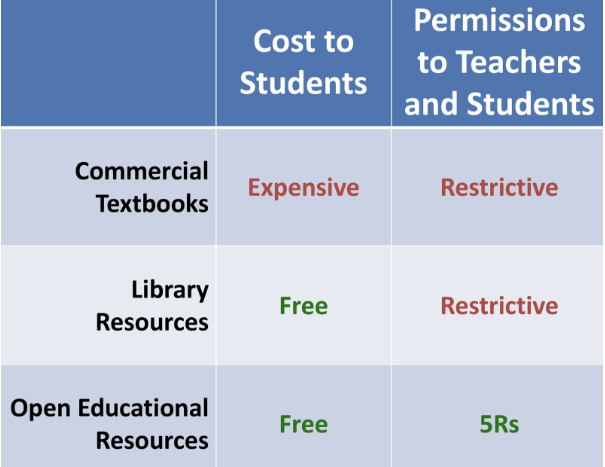

This guide has lists of suggested open educational resources repositories, both general and by subject. The goal is to promote no cost learning materials for faculty selection by reducing the time you spend searching for materials that you can legally use for your courses. This guide is NOT a complete list of OER repositories.
The goal of this guide is to educate faculty about strategies to reduce textbook and course material costs and its benefit to student equity and success. See the FLEX Presentations if you are brand new to OER. The guide is designed as a resource for information about openly licensed course materials, but it is just a start!
See the information below on this page for more about what is OER and ZTC (and it differences).
This site is in progress! Please feel free to email me at williak2@arc.losrios.edu with any questions, suggestions, etc.
Open Educational Resources (OER) are teaching, learning and research materials in any medium – digital or otherwise – that reside in the public domain or have been released under an open license that permits no-cost access, use, adaptation and redistribution by others with no or limited restrictions. -UNESCO

Attribution: Creative Commons Certificate Course Unit 5.2
ARC Zero Textbooks Costs webpage
Share this page with your students!


Use the ZTC Designation Form located here to apply the ZTC symbol to your ZTC sections in the class schedule. This link is also located in the Canvas Help menu.
Use Follett Discover to submit your textbook adoptions (click “Follett Discover” on the left menu). Note: even if you don’t use a textbook or if your course is ZTC, please submit this information each semester - it ensures students receive clear, consistent information about their required course materials (or lack thereof).
Sections receive a Low Cost logo based on adoptions submitted through the Follett Discover tool in Canvas.
For more information see the Course Materials Adoption FAQ website page.
